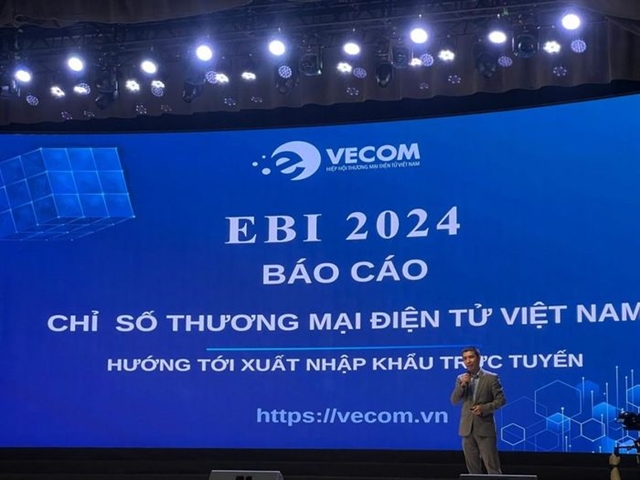 Economy
Economy

Greater Mekong Subregion (GMS) countries need to better use the private sector and high technology to boost their sustainable development, Prime Minister Nguyễn Xuân Phúc said on March 30.
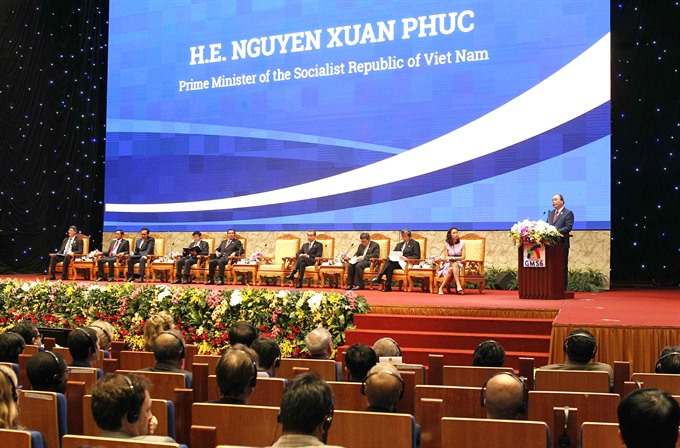 |
| Việt Nam Prime Minister Nguyễn Xuân Phúc co-chairs the Plenary Meeting of the sixth Greater Mekong Sub-region (GMS) Business Summit held yesterday in Hà Nội. — VNA/VNS Photo |
HÀ NỘI – Greater Mekong Sub-region (GMS) countries need to better use the private sector and high technology to boost their sustainable development, Prime Minister Nguyễn Xuân Phúc said on March 30.
"The GMS economies need to reveal new drivers for development amid a transformation of the world economy and development environment," he said at the Plenary Meeting of the GMS Business Summit.
The first-ever business summit was a part of the sixth GMS Summit in the context of the GMS Community celebrating its 25th anniversary this year. The GMS includes five ASEAN countries (Việt Nam, Laos, Cambodia, Thailand and Myanmar) and Yunnan and Guangxi provinces of China.
With a total population of 340 million people and total GDP exceeding US$1.3 trillion, the GMS can become a shared economic region, a common market and open up new opportunities for economic development, according to the Prime Minister.
PM Phúc urged member economies of the GMS to maintain their unique identity as “an effective mechanism to amplify the combined determination and effort of all sides in order to generate new resources to settle differences, broaden and deepen the sphere for economic co-operation.”
Each member economy needs to create a favourable business environment to harness all the potential and innovation of businesses and people, thus, attracting assistance from international development partners and outside resources for the sustainable development of the GMS and Cambodia-Laos-Việt Nam (CLV) region in particular, according to the Vietnamese leader.
Technological advancements and breakthroughs are also important new resources that will carry the potential for connecting GMS and CLV economies and surpass the bounds of GMS founders’ imagination from 25 years ago.
These will turn into new drivers for the development of the GMS in the future. However, sub-regional economies need to ensure sustainable and harmonious development to achieve a prosperous, sustainable and integrated GMS.
“Rapid and sustainable development must remain the top priority, as it is the future generations’ expectation toward each of our decisions and actions. Rapid growth must go hand-in-hand with protection of the ecology and natural resources, especially the sustainable management and use of the Mekong River’s valuable resource,” he said.
Việt Nam’s Government would strive to be a facilitating, action-oriented Government to serve its people and businesses, he said.
Such a Government would focus on creating a favourable environment for development, improving institutional and legal frameworks, enhancing management capacity, making further investment in the infrastructure, promoting international integration in the GMS and CLV regions and bringing equal opportunities for all economic sectors, he added.
Connect GMS enterprises
Sok Phiset, Vice Chairman of GMS-Busines Council and President of the Cambodia Young Entrepreneurs Association, on Friday launched the GMS Business Connect (GBC) application that is expected to become a platform for sub-regional businesses to co-operate and boost corporate performances.
Companies and economies must use high-tech applications to improve the links in the sub-region, providing accurate information and data about GMS companies, Sok said.
Enterprises in the sub-region will encounter many challenges given the rise of the fourth industrial revolution and regional economies pushing to finalise free trade agreements (FTAs), according to Phan Vinh Quang, Deputy Project Director of the Mekong Business Initiative.
Therefore, businesses need to transform, especially with their technological background before the market makes them change, Quang said, adding that they should focus on their strengths and opportunities first and learn from failures at the same time.
Souphaphone Souannavong, Founder & Managing Director of TOH-LAO Coworking Space & TOH-X Coworking Space, said that the Lao government had implemented many policies to encourage start-ups by standardising the business environment and creating opportunities for entrepreneurs.
Though start-ups in Laos had not become typical examples of the sub-region, they had worked efficiently, made some achievements and had a lot of potential, she said. – VNS


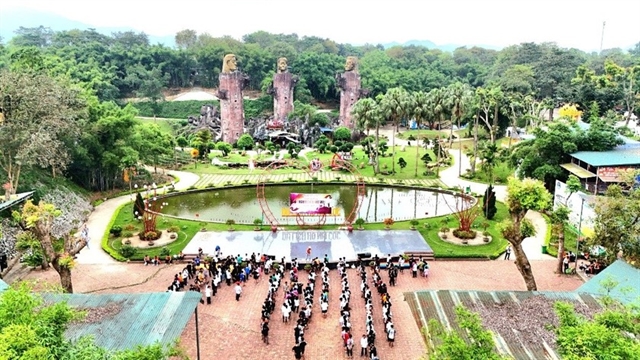
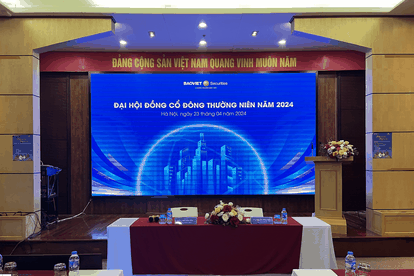
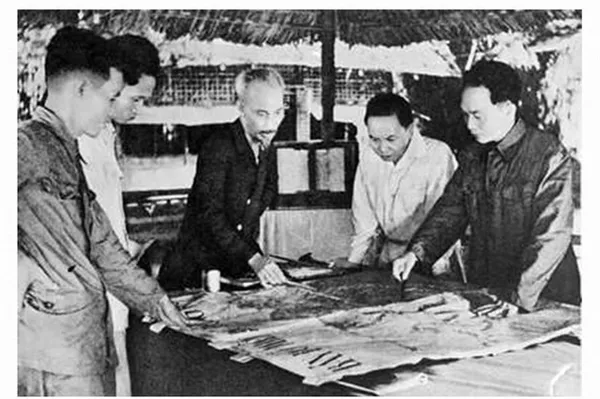
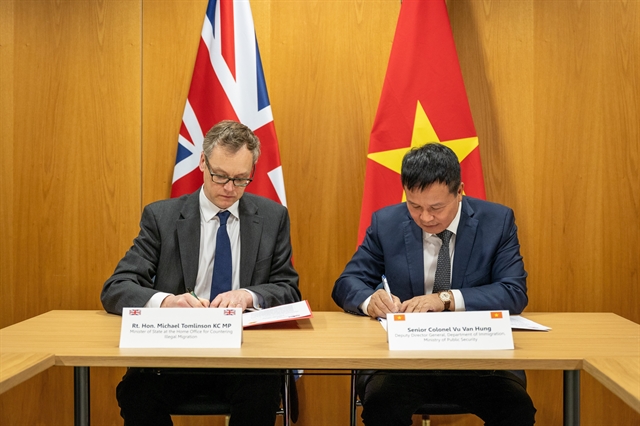



.jpg)